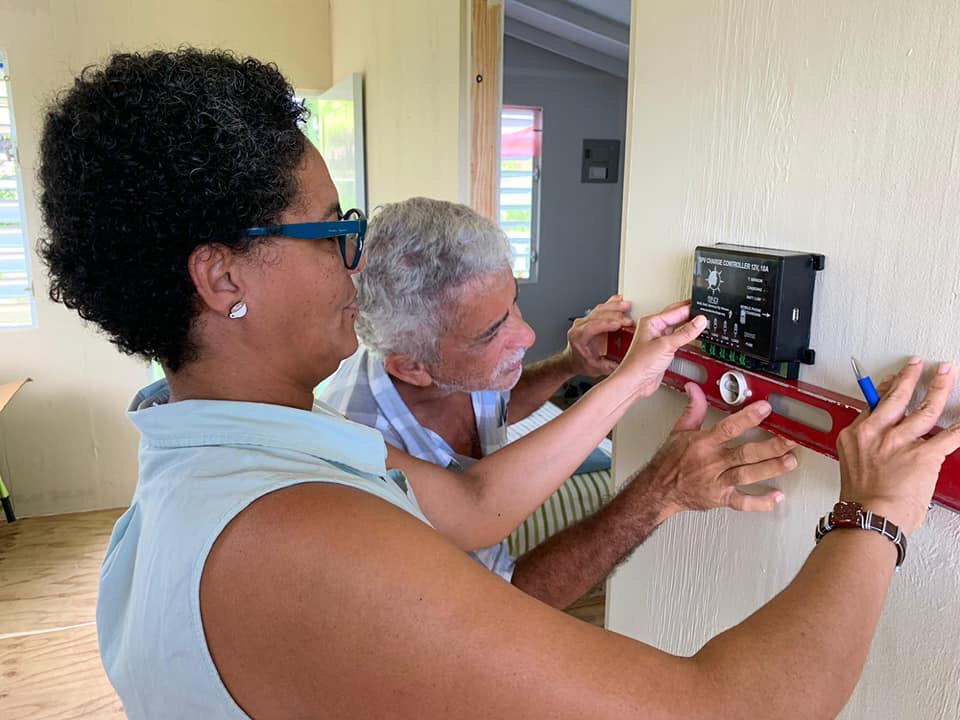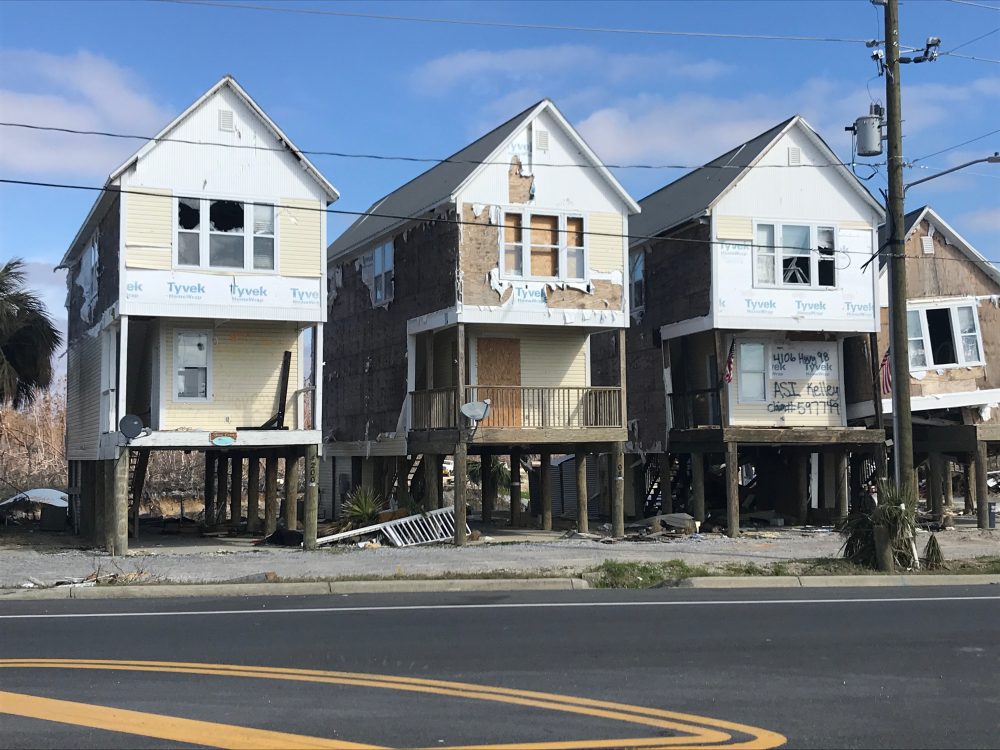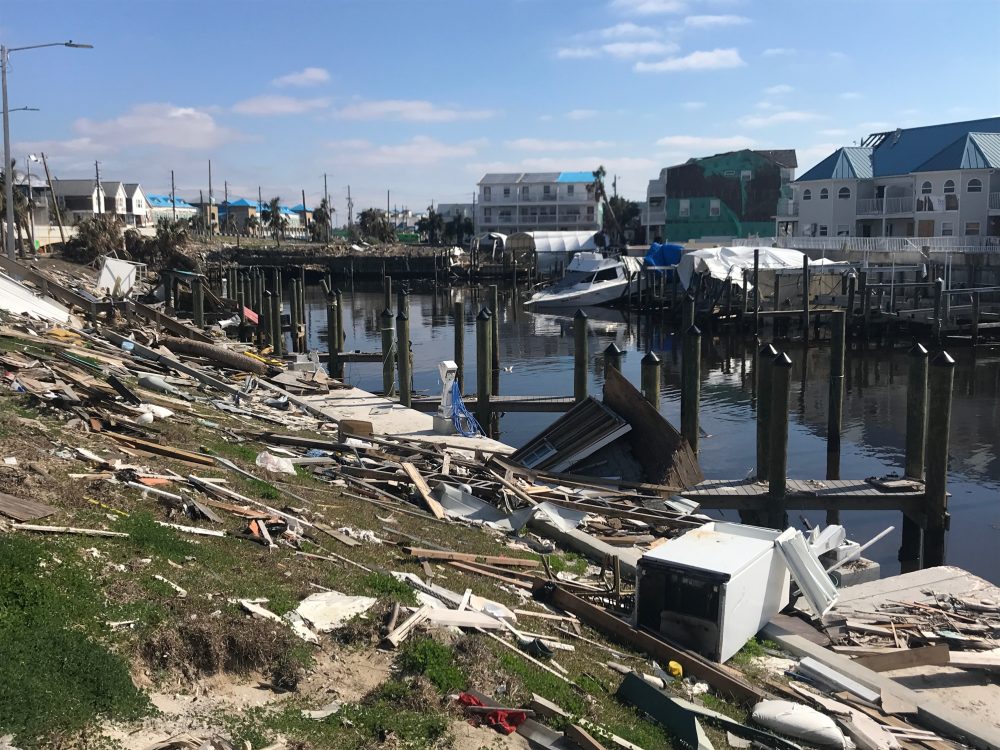Making Progress with Hurricane Recovery
Although the 2019 hurricane season has just ended, I can’t help but reflect on it and the previous years. Of course, Hurricane Dorian and its devastating impact on islands in the Bahamas remains foremost in my mind. As the potential impacts of the storm became clear, here at the Center for Disaster Philanthropy (CDP) we […]

Although the 2019 hurricane season has just ended, I can’t help but reflect on it and the previous years. Of course, Hurricane Dorian and its devastating impact on islands in the Bahamas remains foremost in my mind. As the potential impacts of the storm became clear, here at the Center for Disaster Philanthropy (CDP) we launched the CDP 2019 Atlantic Hurricane Season Recovery Fund to support medium- and long-term recovery in Abaco and Grand Bahama islands. As we have done with previous Recovery Funds, we will work with the affected communities and local stakeholders to identify long-term recovery needs and assess priorities and gaps, then award grants to organizations that demonstrate a commitment to local communities supporting long-term recovery.
With the year drawing to a close, I wanted to take this opportunity to highlight some of the work being done by our grantees.
Puerto Rico and U.S. Virgin Islands (USVI)
On my recent visit to these islands, I met with many of the organizations that received grant awards from the CDP 2017 Atlantic Hurricane Season Recovery Fund and the CDP Hurricane Irma Recovery Fund. It is 26 months after Hurricanes Irma and Maria as these organizations continue to support long-term recovery for communities still grappling with the aftermath of the historic storms. I am pleased to share with you some of their progress.
In USVI, on the island of St. John, I met with the team from Love City Strong and learned about families that have benefited from new household water purification systems that improve the quality of their drinking water and better prepare them for future emergencies that might otherwise have contaminated their water supply. This initiative also reduces the reliance on plastic bottles on an island with sensitive ecosystems.
On neighboring St. Croix, I toured the St. Croix Foundation for Community Development’s solar workforce development program that trains young adults to install and manage solar power systems. By completing the program, they will be certified solar technicians who will begin to install solar power systems in community centers and other locations vital to disaster preparedness. While the goal is to build more disaster resilient communities on the island, this program also provides new economic opportunities to a place with high unemployment — a great example of the intersection of disaster preparedness and economic development.
I also spent three days traveling across Puerto Rico to visit a few of the many programs and initiatives support by CDP grants. Some highlights of the visit include attending a community meeting in Toa Baja where the Fundación Comunitaria de Puerto Rico (FCPR) is supporting the Asociación Comunidades Unidas Tomando Acción Solidaria (ACUTAS) community group through mentorship and sponsorship. With a grant from CDP, FCPR is working with various community groups and nonprofits to increase their capacity to build stronger communities that are more resilient to future disasters and shocks. This is coupled with investments in small-scale business models to support local economies and livelihoods devasted by Hurricane Maria.
Florida
The Keys are still recovering from Irma and I continue to be impressed by the Monroe County Long-Term Recovery Group (LTRG) which established the Volunteer Village. With a grant from CDP, and in partnership with local government and other nonprofits, the Monroe County LTRG worked with partners to set up a site to provide desperately needed accommodations for volunteers working on home repairs and construction across the area.
The Florida Keys Community Land Trust (FKCLT) is addressing the shortage of affordable housing. With a grant from CDP, the FKCLT launched their Affordable Cottages initiative to build resilient housing units. Earlier this month they had a dedication for their first phase of four new homes, designed to withstand 200 mph winds and raised above government mandated height to protect them from storm surge.
Up north in the panhandle of Florida, many communities recently marked the one-year anniversary of Hurricane Michael. Grants from our CDP 2018 Atlantic Hurricane Season Recovery Fund (such as the award to the Toolbank, that is providing tools to nonprofits repairing homes) are supporting housing recovery and local long-term recovery groups across the region. Toolbank has partnered with All Hands & Hearts, Catholic Charities, SBP, Team Rubicon, Panama City Marine Institute, Fountain Volunteer Fire Department & Ironman Foundation to complete 52 projects and equip over 1,200 volunteers with tools.
North Carolina
Many communities continue to recover from Hurricane Florence which dropped a record amount of rainfall in areas still recovering from 2016’s Hurricane Matthew. Our 2018 Atlantic Hurricane Season Recovery Fund supports some of the local organizations assisting with recovery efforts there. The Land Loss Prevention Project is working with hard hit small-scale and marginalized farmers, providing a range of direct legal assistance to financially distressed and limited resourced North Carolinians. Issues being addressed include foreclosure, FEMA-related concerns and farm recovery as well as impacts from the county’s altered economy, farm lending difficulties and relief timing, property transactions following structural damage and estate planning.
Initiatives, programs and collaborations, such as these I have shared, will be required for years to support the many communities affected by recent hurricanes. The Center for Disaster Philanthropy will continue to support this work, foster collaboration and advocate for more resilient communities as part of our commitment to being partners on the long road to recovery.
More like this

People Recovering from the “Forgotten Storms” Need Our Help
